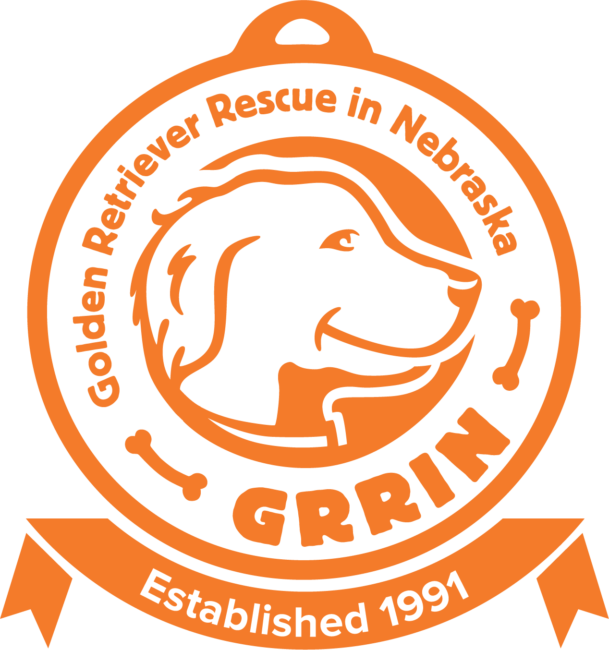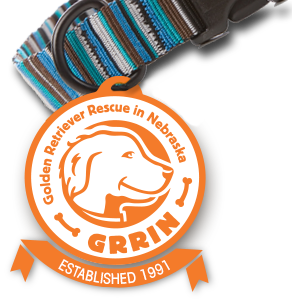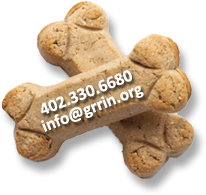 In the late 1980s, early 1990s, breed-specific rescue was coming into its own all across the country. There were a few well organized groups, but many attempts had failed due to poor organization, underfunding, and unrealistic expectations. There were three of us in Omaha who were taking all the calls from people who needed help with a Golden or who were looking for a Golden to purchase: Deb (Platt) Goll through her obedience training classes, Jackie (Stephenson) Smith as a breeder, and myself as GRCA puppy referral person and breeder. We each used different veterinarians, but it seemed like every vet in town had our numbers, as well as the volunteers at the Nebraska Humane Society. It was frustrating to be able to do so little for people, but there was no way any of us could handle rescue operations by ourselves.
In the late 1980s, early 1990s, breed-specific rescue was coming into its own all across the country. There were a few well organized groups, but many attempts had failed due to poor organization, underfunding, and unrealistic expectations. There were three of us in Omaha who were taking all the calls from people who needed help with a Golden or who were looking for a Golden to purchase: Deb (Platt) Goll through her obedience training classes, Jackie (Stephenson) Smith as a breeder, and myself as GRCA puppy referral person and breeder. We each used different veterinarians, but it seemed like every vet in town had our numbers, as well as the volunteers at the Nebraska Humane Society. It was frustrating to be able to do so little for people, but there was no way any of us could handle rescue operations by ourselves.
For several years, GR friends had been encouraging me to start a local Golden breed club in Omaha, but I was hesitant about whether a formal club devoted to development of the breed and competitive events would flourish. Very few people in Nebraska were interested in showing their dogs and there were only a handful of legitimate breeders. But there did seem to be interest in the society of Golden owners and caring for displaced Goldens. So, with the three goals of providing a resource for people who needed to place their dogs, giving the public reliable information about Goldens, and forming a social network for Golden owners, Deb, Jackie and I started on the daunting task of setting up a rescue club.
We met periodically for several months as we researched, brainstormed, and tried to define what we wanted to accomplish. We knew we had to be well organized to be successful. We contacted existing rescue organizations for examples of their documents and procedures and any advice they could give us. The folks in St. Louis were particularly helpful. Eventually, we came up with written goals and procedures that we felt would provide a solid basis for a club devoted to rescue. Then, we took a deep breath and called our first meeting mid-year in 1991. We contacted every friend, student, puppy buyer, and casual acquaintance we could think of who might be interested and invited them to meet with us at Sokol Hall. We had no idea if anyone would show up or if we would be left staring at each other all night. To our delight, some 30 to 40 people came to see what we had in mind.
To those brave souls, we explained the three missions of our club, how we foresaw it operating, and what additional help we needed to make it run. We emphasized that the task of rescue was too big for any one person, but that it was manageable if we broke it down into small tasks and everyone did the part for which they were best suited. We also stressed that there would be no awards, no glory, no dog shows, just some hard—but rewarding—work and occasional fun times with our dogs. The group seemed to like the ideas we put forth and most of them indicated their willingness to join. We filled a couple of very important requirements that night. We needed legal help to file for state incorporation and IRS non-profit status. Greg Starnes, from South Dakota, turned out to be a non-profit lawyer, and he volunteered to handle this for us pro bono. We also needed a treasurer to handle our funds. Linda Nelson, from Lincoln, volunteered to do this, and held this post for many years.
Our organizing work continued: drafting forms for phone calls, rescue dogs, and potential owners; assigning volunteers to various tasks; getting a phone number and PO box; starting a newsletter; even designing a logo. I served as secretary, Jackie as president, Deb as vice-president, Linda as treasurer. Then the fateful day came when a call came about a dog in Council Bluffs that needed help. Jackie and I talked it over and decided that it was time to take on our first rescue, so we took another deep breath and agreed to take the dog. GRRIN was officially open for business.
We had no idea what the demand for rescue would be, maybe 6 to 10 dogs a year? After all, these were Golden Retrievers we were talking about. I think we took in around 18 dogs that first year. The second year we took in 45, and it continued to increase. This would not have been possible without the contributions made by the late Micki Andres. Micki became very active in handling the process of bringing dogs into rescue. In fact, we joked that she was out drumming up business for us! But her dedication and good sense contributed greatly to GRRIN’s early success. Eventually, we realized that the business of processing the dogs into, through, and out of rescue needed a dedicated manager and we asked Micki to serve. She refined and developed the handling of the dogs into its various branches and established a system which has changed little over time.
We didn’t forget our social mission, either. The first Gold Rush picnic was held in 1991 at Elmwood Park. Many of the members attended with their Goldens for a fun afternoon. Radio personality and Golden owner Sherry Kennedy served as emcee for the games and prizes and we attracted a lot of attention from park-goers. The next year, we held the Gold Rush at the Girl Scout camp in Bellevue. We had some excellent pre-carnival publicity in the World-Herald and the place was over-run with people and dogs. The carnival has evolved over time, but it is still a fun and unique event in Nebraska.
We didn’t realize how hard the work would be on the emotions. As with any volunteer group, we had some falling out among the members in the early days, disagreements about policies, hurt feelings, differing levels of commitment, etc. Members lost interest or burned out with the stress of the work. New people stepped up to fill the vacancies and the club survived. Our fundamental organization and procedures were sound and, 25 years later, GRRIN is still thriving, fulfilling its threefold mission and saving Goldens.
On a personal note, I would like to thank all the dedicated volunteers who have given so much to GRRIN. The lessons I learned in the creation and operation of our rescue group were invaluable as I went on to serve on the boards of directors of the Golden Retriever Club of America and the Golden Retriever Foundation. I am incredibly proud of the work that we did back then and that you continue to do so today. You are, indeed, Golden.
Affectionately,
Barb Zelechoski

